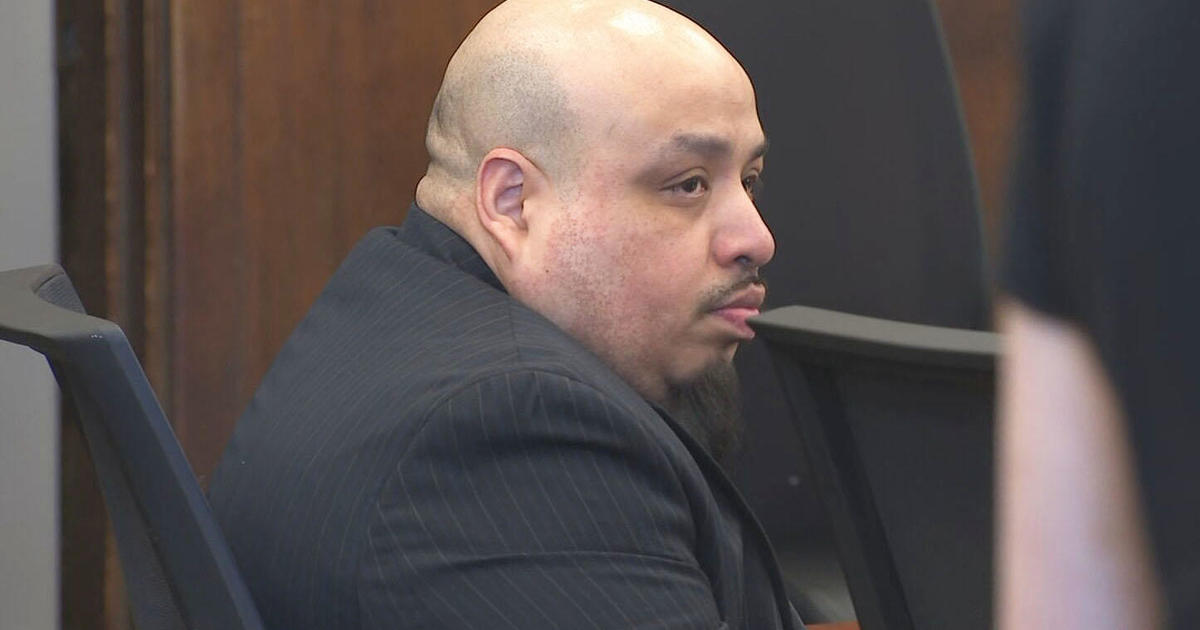I-Team: Firefighter Healthy Enough For CrossFit Receives Disability Pension
WORCESTER (CBS) - Retired Worcester Lt. Ed Ryan maintains an active lifestyle, despite his career coming to an early end more than a decade ago because of an on-the-job injury.
Now 60 years old, the former firefighter can play a round of golf without a cart. He also does CrossFit workouts at a gym in Millbury, where he earned "athlete of the month" honors in April.
"I've lost more than 40 pounds, at least six inches off my waist, and if I miss a workout, it's not because of laziness!" said a testimonial from Ryan on the gym's Facebook page. "The doctor told me to continue doing whatever it is I'm doing because it's working!"
The WBZ I-Team received a tip, questioning why Ryan is continuing to receive a disability pension if he is healthy enough for the physical fitness regimen. Under state law, public employees who qualify for disability pensions take home 72 percent of their salary tax-free. It means they earn roughly the same income compared to when they were healthy and paying taxes.
As a lieutenant, Ryan was making almost $70,000 when he retired in 2005. Since then, Worcester public records show he has earned more than $375,000 in tax-free disability pension payments. And those paychecks will continue as long as he lives.
"I would've gone back to work," Ryan told the I-Team. "I even suggested to the Chief that he put me in fire prevention at the time and he said there were not any vacancies. So it wasn't really my decision."
Ryan suffered the injury while fighting a fire in June 2003. Because of privacy laws, public records do not describe the nature of his disability. However, Ryan told the I-Team he sustained nerve damage to his left arm while pulling a fire hose up a flight of stairs.
Sidelined for more than a year, records show Worcester Fire Chief Gerard Dio filed for Ryan's involuntary retirement in November 2004 after a doctor determined he was "at a medical end result and permanently unable to return to duty."
One section of the disability application asked if Ryan's 26 years of experience and qualification would allow him to hold any other position within the department. The box was checked, "No."
Deputy Chief Geoffrey Gardell, a spokesman with the fire department, told the I-Team it doesn't comment on individual cases.
Joseph Connarton, the executive director of the Public Employee Retiree Administration Commission (PERAC), said there is no prohibition for someone receiving a disability pension to have an active workout routine.
"I understand the anger of people when see someone working out or they see a bodybuilder," Connarton said. "They don't really know what injuries those people may have sustained while working."
Connarton said the pension oversight agency focuses the majority of its fraud investigations on retirees who make too much money on other jobs while also collecting disability benefits. For instance, in the past four years, he said PERAC has identified $5 million in excess earnings that are owed to local retirement systems. "We are sensitive to the perception of people abusing the system," Connarton said.
Once disability pensions are approved, retirees have to periodically provide PERAC with current medical records from their primary care doctors.
Ryan said he does not recall any intensive evaluation since he retired in 2005. His most recent letter on file is from March 2013. According to the document, a PERAC nurse case manager determined he was "unable to perform the essential duties of his job."
The following year, Ryan participated in a "Tough Mudder" challenge, a 12-mile trek at Mount Snow in Vermont.
The I-Team asked how rare it is for public employees receiving disability pensions to eventually go back to work. According to PERAC, approximately 15,600 people have received disability pensions since 1997. But only 117 have returned to their jobs—less than 1 percent.
Connarton said there are a number of reasons why the number is so low: as people age, they are no longer able to perform their previous job duties; they have suffered another illness or injury since retiring; or their former job is no longer available.
"Can they go back to the job and do all the duties of that job from which they retired? That is the key question," Connarton said.
Greg Sullivan is a former Massachusetts Inspector General, who now acts as research director at the Pioneer Institute, a public policy think tank.
"This is a poster child case of the need for reform in Massachusetts," he said. "You have a person who could be on disability for 40 years and that to me is a big, expensive problem."
Sullivan believes Ryan could do some job within the fire department, or even the City of Worcester. But instead, the law states he would have to return to work as a lieutenant, assuming there is even a vacancy for the position.
"The law is the scandal. The law is the problem," Sullivan said.
Connarton said a PERAC-appointed doctor will now examine Ryan to see if he could potentially return to his job. If so, a three-member medical panel would make the ultimate determination.
As for Ryan, he refutes any perception that he has done something wrong. He told the I-Team he would have been happy to perform a few more years of service to retire with a regular pension.
"I'm not abusing the system," he said. "I think it's kind of antiquated myself, but who am I to judge?"
Ryan Kath can be reached at rkath@cbs.com. You can also follow him on Twitter or connect on Facebook.
Send tips for the I-Team to iteam@cbsboston.com or call 617-779 TIPS




